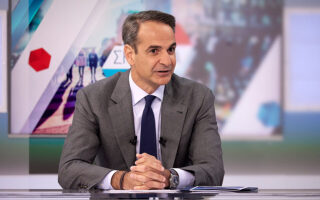Why the voting age should be 21

There are certain things in life that are so evident that they warrant no explanation. They should not require a search for arguments to justify their existence or practice. Unfortunately, however, the self-evident has in many cases been reduced to subjective opinion, and therefore, my position on the following matter should be seen as subjective, even though I am confident that most people share these views, even if they hesitate to admit it.
The issue at hand pertains to having 17 as the minimum age for voting. My position is that at this age, and until, let’s say, a conventional age like 21, granting the right to vote is misguided. The majority of individuals within this age group have not yet acquired the experiences necessary to make informed judgments based on logical reasoning, such as their own self-interest or a coherent ideological preference. Nor have they developed the resilience to withstand outside manipulation. Put simply, their minds are still green.
Democracies have not yet developed a formula to exclude foolish voters and other undesirable categories from the democratic process
You might ask, doesn’t the same apply to older individuals? Yes, to some extent this is true. But democracies have not yet developed a formula to exclude foolish voters and other undesirable categories from the democratic process – including those who openly oppose democracy. By raising the age limit, in the interest of democracy itself, we could prevent a significant chunk of voters from distorting the final outcome. Let us protect democracy from its greatest adversary, which is excessive democracy.
The right to vote was granted to younger age groups in the past under the assumption that children generally vote along the lines of their parents, thereby not distorting the final result. Perhaps this was true at the time, but not anymore. The new generations have grown extremely skilled and addicted to using the internet – much more so than adults, parents and teachers. They have entered a different world.
The constant engagement with social media exposes young people to various fraudsters and ideological predators who play into their insecurities, gullibility, curiosity, and inclination to defy convention. Innocent children are exposed to a potent and pervasive influence mechanism. A mechanism that has the ability to target each individual person.
I contemplated these matters on the boat while returning from the island of Aegina, accompanied by a group of schools returning from their May Day weekend trips. Boys and girls engrossed in their tablets and phones, wielding technological prowess with minds still in the formative stages, who were among those who cast their vote on Sunday.





